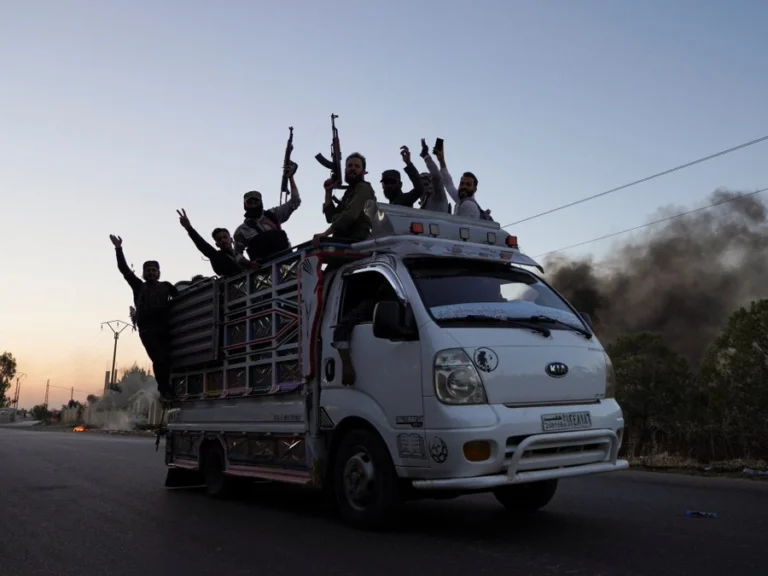Israel and Syria Agree to Temporary Ceasefire Amid Sweida Bloodshed
Israel and Syria agreed to a temporary ceasefire in southern Syria’s Sweida province, following days of violence and mounting humanitarian concerns.

Ceasefire declared in Sweida after a week of fighting between Druze and Bedouin forces in southern Syria. Photo: @AJEnglish
July 19, 2025 Hour: 5:59 am
Israel and Syria have agreed to a temporary ceasefire, supported by Turkey and Jordan, following nearly a week of deadly clashes in southern Syria’s Sweida province that killed more than 300 people and left hundreds injured.
RELATED:
Six civilians killed in Israeli strikes and attacks across war-torn Gaza
Israel and Syria have reached a short-term truce after a sharp escalation of violence in the Druze-majority province of Sweida. The ceasefire, announced Friday by U.S. Ambassador to Turkey Tom Barrack, was brokered with the backing of Turkey, Jordan, and neighboring states.
“We call upon Druze, Bedouins, and Sunnis to put down their weapons and together with other minorities build a new and united Syrian identity,” Barrack posted on X.
Earlier in the week, Israeli airstrikes targeted government forces in Damascus and southern Syria, citing the need to protect Druze communities. Although Israel had previously opposed the presence of Syrian troops in the south, an Israeli official said on Friday that limited access would be granted for 48 hours to help de-escalate the situation.
“In light of the ongoing instability in southwest Syria, Israel has agreed to allow limited entry of the (Syrian) internal security forces into Sweida district for the next 48 hours,” the official told reporters, speaking on condition of anonymity.
The fighting began on Sunday between Druze militias and Bedouin factions. Syrian troops initially deployed to contain the violence were accused of abuses and were later targeted by Israeli airstrikes. The troops withdrew under the terms of a previous truce.
Despite the latest agreement, hostilities reportedly continued in the northern and western parts of the province. Ryan Marouf, editor of local news outlet Sweida24, confirmed that fighting had not stopped. Residents described worsening conditions, including shortages of electricity, water, and food.
“For four days, there has been no electricity, no fuel, no food, no drink, nothing at all,” said Mudar, a 28-year-old resident. “The clashes haven’t stopped,” he added, noting that communications were severely disrupted due to limited internet and mobile coverage.
Reuters journalists observed a convoy of Syrian Interior Ministry units halted in neighboring Daraa province, awaiting final clearance to enter Sweida. Thousands of Bedouin fighters were also seen moving into the province, raising fears of further violence.
Syria’s presidency later confirmed that a force would be deployed to restore calm and implement political and security measures to prevent a renewed escalation. President Ahmed al-Sharaa, who has sought warmer ties with Washington, accused Israel of attempting to divide Syria and vowed to protect the Druze community.
The Syrian Network for Human Rights reported at least 321 deaths since Sunday, including women, children, medical personnel, and victims of summary executions carried out by various armed actors.
On Tuesday, the UN Human Rights Office cited credible reports of summary killings, including an attack in which 13 civilians were shot at a family gathering, and the execution of six men near their homes the same day.
The UN refugee agency on Friday called on all parties to allow humanitarian access, warning that violence had blocked aid delivery and forced hundreds of families to flee.
While Israel claims it is defending Druze civilians, the United States has expressed disapproval of the Israeli strikes—highlighting a growing rift between the two allies over how to address Syria’s ongoing crisis.
As the ceasefire in Sweida remains fragile, civilians continue to suffer the consequences of regional rivalries and local power struggles. Humanitarian needs are growing, and international pressure is mounting to ensure civilian protection and accountability for the violence.
Author: MK
Source: Reuters




